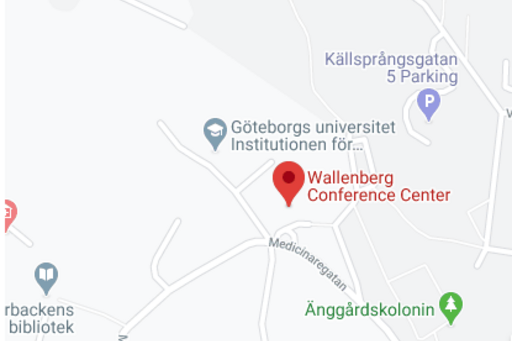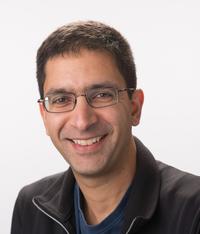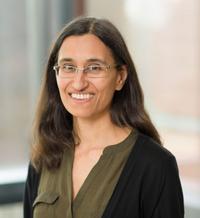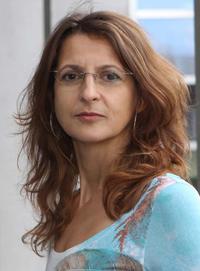Swedish Bioinformatics Workshop 2019
We are inviting you to the Swedish Bioinformatics Workshop held on October 21-22 in Gothenburg at the Wallenberg Conference Centre. The registration is free of charge, and the conference will serve as a meeting point for PhD students, postdocs, and other researchers in Sweden working with bioinformatics, computational biology, or similar areas
About us
SBW is an annual event that has been organized by the different universities in Sweden. This year it will take place at the Wallenberg Conference Centre in Gothenburg and is arranged by both the University of Gothenburg and Chalmers University of Technology.
As is tradition, SBW2019 will be a meeting point for PhD students and postdocs working with any kind of bioinformatics, computational biology, etc. within Sweden and is therefore free of charge for these groups. We are proud to announce a program including invited speakers – Christina Leslie from the Sloan Kettering Institute in New York, Lior Pachter from the California Institute of Technology, and Mihaela Zavolan from the Biozentrum of the University of Basel – and participant presentations and poster sessions. This year the program will also contain a number of hands-on workshop sessions where participants can learn about new computational tools or methods that could be applied to their own work.
If you would like to attend SBW2019, please register here. If you want to submit an abstract for talks/posters follow this link. If you have any questions, please contact Jonathan Robinson.
Location
The conference is held at the Wallenberg centre, Medicinaregatan 20, 413 90 in Gothenburg.
The closest commuting stop is Medicinaregatan which you can reach by tram 6, 7, 8 and 13 and by bus 753.

Presentations
See presentations from the Swedish Bioinformatics Workshop 2019 below:
Francesco Gatto
From systems biology research to a diagnostic start-up, Elypta
Marcela Davila
The core facilities and SSF projects
Mihaela Zavolan
Deciphering the post-transcriptional control of gene expression
Nikolay Oskolkov
Do We Have Big Data in Life Sciences? Are we ready for AI or amount of data is still a bottleneck?
Keynotes
Lior Pachter
Lior Pachter received a PhD in Applied Mathematics from MIT in 1999. He then moved to the University of California at Berkeley where he was a postdoctoral researcher (1999-2001), assistant professor (2001-2005), associate professor (2005-2009), and until 2018 the Raymond and Beverly Sackler professor of computational biology and professor of mathematics and molecular and cellular biology with a joint appointment in computer science. Since January 2017 he has been the Bren professor of computational biology at Caltech.
Lior Pachter’s research interests span the mathematical and biological sciences, and he has authored over 100 research articles in the areas of algorithms, combinatorics, comparative genomics, algebraic statistics, molecular biology and evolution. His lab develops computational and experimental methods for genomics, and is currently focused on the development of single-cell genomics technologies and their application to RNA biology. The computational challenges addressed in his group involve the analysis of high-dimensional data.

Christina Leslie
Christina Leslie received a PhD in Mathematics from the University of California, Berkeley, and did her postdoctoral training in the Mathematics Department at Columbia University in 1999-2000. She then joined the faculty of the Computer Science Department and later the Center for Computational Learning Systems at Columbia University, where she became the principal investigator leading the Computational Biology Group. In 2007, she moved her lab to the Computational Biology program of Memorial Sloan Kettering Cancer Center, where she is currently an Associate Member.
Chrstina Leslie’s research group uses computational methods to study the regulation of gene expression in mammalian cells and the dysregulation of expression programs in cancer. She is well known for developing machine learning approaches for analysis of high-throughput biological data, particularly from next-generation sequencing. Focus areas in the lab include dissecting transcriptional and epigenetic programs in differentiation, microRNA-mediated gene regulation, alternative cleavage and polyadenylation, and integrative analysis of tumor data sets.

Mihaela Zavolan
Mihaela Zavolan received a PhD in Computer Science from the University of New Mexico in Albuquerque. Between 1993 and 2003 she conducted research at the Santa Fe Institute in Santa Fe, the Los Alamos National Laboratory in Los Alamos, as well as at the Rockefeller University in New York. In 2003, Mihaela Zavolan was appointed Professor of Computational and Systems Biology at the Biozentrum of the University of Basel. She is also a group leader in the Swiss Institute of Bioinformatics (SIB).
The primary research focus in Mihaela Zavolan’s group is on microRNAs (miRNAs), which regulate the expression of protein coding genes to control cell differentiation, metabolism, and immune responses. Through the development of high-throughput experimental methods and computational analyses, she has contributed to the discovery of miRNAs in various organisms ranging from viruses to humans. Her group has developed algorithms to predict miRNA genes and miRNA targets, and has worked on the development of the CLIP method (cross-linking and immunoprecipitation) for mapping the binding sites of RNA-binding proteins in RNAs.

Workshops
Understanding the biological function of a protein using structural bioinformatics
Leader: Anna Reymer
Abstract: Structural bioinformatics studies molecular structures and interactions to explain the function of a biological molecule in question, and when necessary find a way to block this function for medicinal purposes. In this workshop, we will combine homology modeling to create a model of a protein, and molecular docking to study interactions of the protein with a set of small ligands, potentially pharmacologically potent. NOTE: Bring your own laptop and have USCF Chimera installed!
-----------------------------------------------------------------------------
Wait a minute! – On annotation errors and how to spot them
Leader: Johan Bengtsson-Palme
Abstract: Bioinformatic approaches for functional predictions rely upon correctly annotated database sequences. However, the assumption that the information in biological databases can be trusted is only sometimes true. The presence of inaccurately annotated or otherwise poorly described sequences introduces noise and bias to biological analyses and in the worst cases lead us do draw totally wrong conclusions. In this workshop, we will look at some things to be suspicious about in bioinformatic results and discuss strategies to deal with poorly annotated reference sequences.